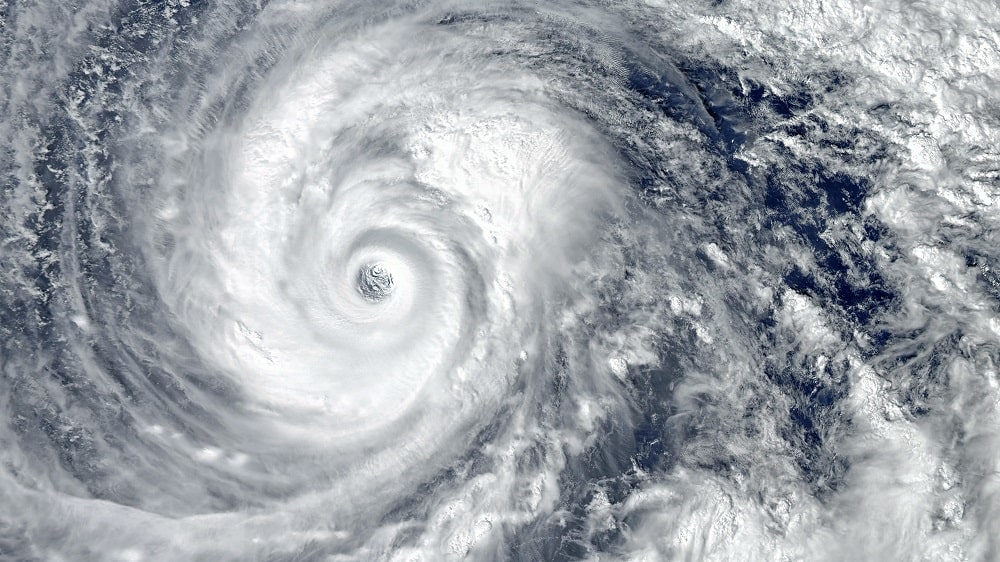5 Tips for What to Do During a Hurricane to Remain Safe

If you're caught in a hurricane, a million things will likely be going through your mind. But you must remain calm and reflect on everything you've learned in order to remain safe.
First things first, the safest way to stay safe during a hurricane is to evacuate outside the hurricane zone. However, even though we recommend evacuating, we understand it's not always in the cards for everyone.
If you must stay, it's time to hunker down and follow these five tips that aim to keep you and your family safe.
1. Remain Inside Until the Hurricane Has Passed
Hurricanes are scary to live through, especially when they make landfall at nighttime. No matter how safe you think it is to go outside while the hurricane is passing through, don't do it. It's not safe out there.
Strong hurricane winds can destroy homes, scatter debris and even pick up cars and boats and sling them through the air. You don't want to be outside when debris is flying through the air because it could leave you seriously injured.
The best place to be during a hurricane is an interior room, like a bathroom or closet, on the lower level of your home. Even if there's a period of calm weather that directly follows whipping winds, it could be the eye of the storm passing over you. The storm still has another side that will pass by after this.
But how do you know if the eye of the hurricane is leading to calm weather or if the entire storm has passed by? That's where the next tip comes in handy.
2. Use a Portable, Battery-Powered Radio
Using a portable, battery-powered radio, which should be one of the items on your hurricane preparation checklist, is the best way to get updates on the storm. When hurricanes hit, the first thing that goes is the power source, so you'll likely be stuck in your home with no power for an extended period of time.
Having a battery-powered radio allows you to pick up the national weather service to get storm updates, which can help you figure out how long the storm will last and when it's safe to go outside.
They're fairly cheap to buy and usually require AA or AAA batteries. Remember to keep some extra batteries around in case you need them.
3. Follow Public Safety Protocols
If your power goes out, your best bet to get public safety protocols is via the aforementioned battery-powered radio. You'll want to find the local radio station before the hurricane hits, because that will likely be the best way to get localized updates, including when it's safe to leave your home and what the conditions outside are like.
However, if the power doesn't go out, checking the local news may likely be the best way to get updates. There's a good chance they'll be displaying more in-depth information about your immediate area, like if any roads are closed, if local rescue teams are in the area and if it's safe to leave your home.
Following these public safety protocols will help keep you safe and get you out of the affected area as soon as it's safe to do so.
4. Watch for Water Entering Your Home
Flood waters can become a serious problem during hurricanes, especially if your home is near a body of water. With storm surges up to 20 feet, hurricanes can cause flooding within hours of landfall.
If you see any water entering your home, try to block it with sandbags or towels. Then turn off the electricity to your house. This helps prevent the water from surging the power and can even prevent electrical fires.
It's also a good idea to stay away from any electronics and always stay completely out of the water. Lightning strikes or exterior electrical wires can charge standing water and make it an extremely dangerous hazard.
5. Follow All Instructions for Using a Generator
The most important thing to know about generators is that you must use them outside and at a safe distance away from doors, windows or other openings into your home. Never run a generator inside your home. Fumes from generators can become toxic in enclosed spaces, including if the fumes come through an open window.
Although generators can be waterproof, you should also try to keep your generator out of rainwater and standing water if possible. It's also smart to keep a carbon monoxide detector directly inside the nearest opening from the generator. This device will let you know if high levels of carbon monoxide are entering your home.
Follow these five simple tips to stay safe during a hurricane. But, most of all, use your natural instinct. If something feels wrong, you may want to err on the side of caution. You should also check your insurance policies to determine your hurricane coverage.